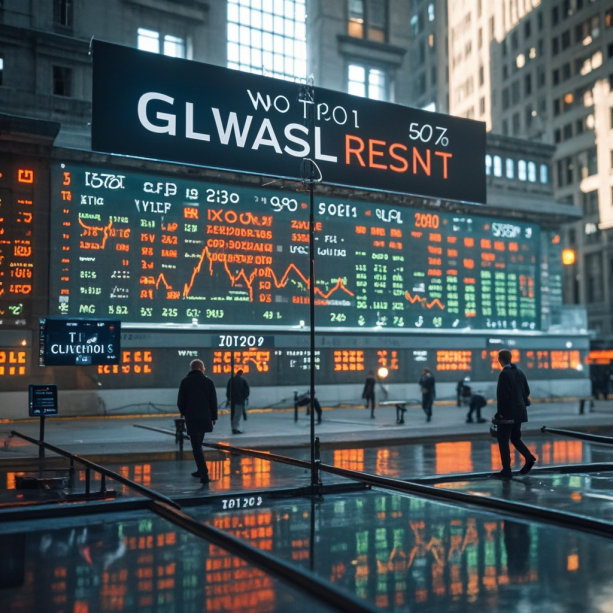Global Markets Rebound, Wall Street Still Worries About U.S. Recession
After consecutive days of sharp declines, global financial markets have finally caught a temporary breather. On April 7, U.S. stocks largely closed flat after wild intraday swings, while on April 8, markets across Asia-Pacific and Europe showed signs of a rebound, injecting some optimism among participants.
On April 8, China’s A-share market delivered a strong performance. The Shanghai Composite Index rose 1.58%, the Shenzhen Component Index gained 0.64%, and the ChiNext Index surged 1.83%, demonstrating notable resilience. Hong Kong’s Hang Seng Index also closed 1% higher, reflecting broader positive momentum in the Asia-Pacific region. European markets followed suit, with major indices posting gains as investor confidence appeared to recover.
However, even as global markets rebounded, Wall Street remained gripped by fears that the U.S. economy is "already in a recession." The recent steep selloffs highlighted deep concerns over America’s economic outlook. While short-term rebounds have emerged, multiple underlying risks persist.
From a macro perspective, the U.S. currently faces a series of economic challenges. First, inflationary pressures remain stubbornly high, with the Consumer Price Index (CPI) continuing to climb. This not only erodes consumer purchasing power but also places significant cost pressures on businesses. In response, the Federal Reserve has adopted tightening measures—raising interest rates and shrinking its balance sheet—to curb inflation. While these policies aim to rein in price surges, they may also dampen economic growth, potentially leading to a slowdown.
Second, ongoing geopolitical conflicts and supply chain disruptions continue to destabilize the global economic order. As a key player in the world economy, the U.S. is far from immune. Supply chain bottlenecks have hampered production, exacerbated goods shortages, and further fueled inflation, while also weighing on corporate earnings expectations.
For Wall Street, these combined factors have significantly raised the risk of a U.S. recession. Although markets are rebounding, this may only reflect a short-term technical correction rather than a fundamental improvement in economic conditions. Should a recession materialize, the repercussions for global financial markets could be profound.
On one hand, as the world’s largest economy, a U.S. downturn would weaken global demand, affecting exports and growth in other countries. On the other, turmoil in U.S. financial markets could trigger a flight to safety, drawing capital back to America and destabilizing emerging markets.
Amid this complex economic landscape, investors must remain highly vigilant. Short-term market rebounds do not signal the all-clear—they may instead precede a storm. Whether the U.S. is truly entering a recession will require closer scrutiny of upcoming economic data and policy shifts.
Looking ahead, the Federal Reserve’s monetary policy trajectory will be pivotal. Aggressive rate hikes, while curbing inflation, could hasten a recession, whereas overly cautious easing might let inflation spiral further. Striking the right balance poses a major challenge for the Fed—one that will shape the future path of global markets.
In summary, the current rebound in global markets stands in stark contrast to Wall Street’s recession anxieties. Investors should closely monitor economic and policy developments, making cautious decisions to navigate an increasingly volatile financial environment.
